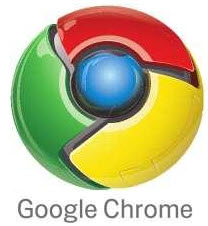You are hereBlogs / WcP.Market.Watch's blog / New contender in the browser wars: Google to launch open source web browser Chrome on Tues., takes on Microsoft
New contender in the browser wars: Google to launch open source web browser Chrome on Tues., takes on Microsoft

(quote)
Google is launching an open source web browser to compete with Internet Explorer and Firefox. The browser is designed to be lightweight and fast, and to cope with the next generation of web applications that rely on graphics and multimedia.
Called Chrome, it will launch as a beta for Windows machines in 100 countries, with Mac and Linux versions to come. "We realised... we needed to completely rethink the browser," said Google's Sundar Pichai in a blog post. The new browser will help Google take advantage of developments it is pushing online in rich web applications that are challenging traditional desktop programs. Chrome will be an open-source product, meaning anyone can modify the software code and add features.
Google has a suite of web apps, such as Documents, Picasa and Maps which offer functionality that is beginning to replace offline software. "What we really needed was not just a browser, but also a modern platform for web pages and applications, and that's what we set out to build," Mr Pichai, VP Product Management, wrote.

The launch of a beta version of Chrome on Tuesday will be Google's latest assault on Microsoft's dominance of the PC business. The firm's Internet Explorer program dominates the browser landscape, with 80% of the market. Last week Microsoft Corp. released a beta, or test, version of Internet Explorer 8 that makes it easier to block ads from Google and others. "This is the first truly serious threat that Microsoft has faced from a well-funded platform," said technology analyst Rob Enderle, president of the Enderle Group.
Google has long ruled how people search the Web. Now it is going after how they navigate it, analysts say. "We like this move by Google and believe it can help to increase or at least maintain its leading search market share," Needham & Co. analyst Mark May said in an e-mail. "As the starting point for nearly every user's Internet experience, the browser is important online real estate. The market share gains by Firefox in a short period of time show to us that users are looking for better browser experiences."
One feature will allow consumers to run Web-based applications independently, which means that if one program crashes it won't take down the browser. By improving the reliability of such online services, Chrome could mark another step in the browser's drive to supersede the computer operating system in importance, said Matt Rosoff, analyst with Directions on Microsoft, a research firm focused on Microsoft products and strategy.
Redmond, Wash.-based Microsoft holds a virtual monopoly in operating systems, but their importance in the computing landscape is diminishing as Web-based programs become the starting point for many users. Internet Explorer General Manager Dean Hachamovitch called the browser market "highly competitive" and said he remained confident that consumers would stick with Microsoft's product. Google executives have expressed concern over the years that Microsoft could use its dominant browser to route consumers to its own search engine, which has sputtered despite years of effort and billions of dollars in investment.

Explorer 8 enables a user to surf the Web without the sites he or she visits being tracked. Google and other Internet companies -- including Microsoft -- use such information to finely target the ads they display. People who use Chrome could give Google even more information about their online habits.
Launching a browser war with Microsoft is a bold move for Google because Microsoft controls nearly 75% of the market. It also could cause trouble for Firefox, a free browser that is gaining popularity but still trails far behind Explorer.
The nonprofit Mozilla Foundation, which manages Firefox, has benefited from engineering help and money from Google. In 2005, Google hired the lead engineer behind Firefox, who splits his time between Google and Mozilla. Just last week, the two extended their partnership, which makes Google the browser's default search engine, through 2011. Also potentially vulnerable are Opera and Apple Inc.'s Safari, which have captured much smaller fractions of the user population.
News about Chrome broke Monday after the website Google Blogoscoped reported receiving a comic book from Google that outlined the details of the new browser. A Google blog post later explained that it had inadvertently released the news. "We believe we can add value for users and, at the same time, help drive innovation on the Web," the post said. The browser, which Google says was built from scratch, has been in the works for two years. It is intended as a "modern platform for Web pages and applications" that can run faster and be more responsive, the post said.
Even coming from a universally known brand such as Google, the browser might not catch on. Google may encounter resistance from consumers, who typically switch browsers out of frustration, not for new features, Enderle said. Rosoff said Google will attract its share of "curiosity seekers" and can rely on distribution deals to increase its market share. "I think this could be a real contender," he said.
(unquote)
Photos courtesy of Google, BBC News
Original Source: BBC News and LA Times
Related Articles: Meet Chrome, Google’s Windows Killer, Google’s Chrome Re-Ignites the Browser War and Google to Release Web Browser Tuesday; Should Microsoft Worry, or Mozilla?
From Official Google Blog: A fresh take on the browser


















